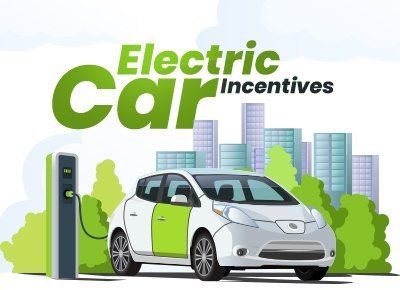
As more individuals become conscious of how gasoline-powered automobiles affect the environment, interest in electric cars has increased recently. Electric automobiles not only provide huge cost savings over their gas-powered counterparts but are also better for the environment. We’ll examine how electric automobiles may save money in more detail in this piece.
Cost of Electric Vehicles at First

The initial expense of an electric automobile is one of the major barriers. Gas-powered cars are often less costly than electric vehicles. However, during the past several years, the price of electric automobiles has been continuously declining, making them more affordable for the typical user. Additionally, tax advantages are available from the federal government and several states for buying an electric vehicle.
Maintenance should be taken into account when estimating the cost of electric vehicles. Electric vehicles require less maintenance since they have fewer moving components than gas-powered vehicles. Long-term savings are possible since you’ll pay less on regular upkeep and repairs.
Electric cars save on money (fuel costs)

The gasoline expenses are where electric automobiles save the most money overall. Because electricity is substantially less expensive than petrol, charging an electric automobile is less expensive than filling up the tank. These savings might accumulate over time. Additionally, compared to gas-powered vehicles, electric vehicles require less maintenance, which saves you money on tune-ups, oil changes, and other standard maintenance.
Government Support for Electric Vehicles
The federal government and several states provide tax advantages and rebates to entice consumers to buy electric vehicles. These subsidies can lower the initial cost of an electric vehicle and increase its affordability. Additionally, some communities provide additional benefits to owners of electric vehicles, such as free parking or access to carpool lanes.
The Price of a New Electric Vehicle
An electric automobile may have a greater starting cost than a conventional car. The pricing disparity is, however, narrowing as more electric vehicles enter the market. It’s vital to remember that electric automobiles require less maintenance, which might reduce the cost of the original purchase.
Tax incentives and credits

Owners of electric vehicles may take advantage of a number of tax breaks and incentives. The federal government provides an up to $7,500 tax credit for the purchase of a new electric vehicle. Other incentives, such tax credits or refunds, are also provided by certain states. Make sure to visit the website of your state’s government to find out what incentives are offered nearby.
Less expensive maintenance
Since electric vehicles have fewer moving components than conventional vehicles, there are also fewer potential points of failure and replacement. Over time, this results in cheaper maintenance expenses. Additionally, electric automobiles don’t need oil changes or emissions inspections, which can further reduce costs.
Lower Fuel Prices
Electricity, which is more affordable than petrol, is used to power electric vehicles. Electricity prices vary by area, however they are often less expensive than petrol prices. Additionally, several jurisdictions provide electric vehicle users with discounted power prices. You might save hundreds or even thousands of dollars year on gasoline expenditures, depending on how frequently you drive.
Long-Term Purchases
Traditional autos last less time than electric vehicles. Additionally, because of their greater resale prices, you may sell them for a bigger profit when the time comes. Electric vehicles also need less maintenance, which over time may save you money.
Environmental Advantages
The environmental effect of electric vehicles is one of their main advantages. Electric vehicles produce no emissions, therefore they have no impact on global warming or air pollution. Additionally, renewable energy sources like solar or wind power, which are significantly cleaner than fossil fuels, are used to power electric vehicles.
Vehicle Value and Electric Vehicles
The value of an electric car is higher than that of a conventional vehicle. Their decreased maintenance costs and longer lifetime are a few reasons for this. Additionally, as more people show interest in electric cars, there will be a greater demand for them, raising their resale value.
Charging an Electric Vehicle
Your electric vehicle can be charged quickly and easily. A portable charging cable that can be plugged into a standard household socket is included with the majority of electric vehicles. It’s vital to keep in mind, though, that using a specialised charging station will speed up the process.
Dedicated charging stations can be built in homes or located at public charging stations. These charging stations provide quicker charging periods and are more practical for regular usage. Some producers of electric vehicles, like Tesla, maintain a network of charging stations that are only available to their customers.
Battery’s life

An electric car’s battery life might vary based on the manufacturer and model of the vehicle as well as the owner’s driving style. The majority of electric vehicles can go between 100 and 200 miles on a single charge. However, some expensive versions have a single charge range of up to 300 miles.
It’s crucial to remember that an electric car’s battery life will eventually get shorter. However, improvements in battery technology are extending the life of the batteries used in electric vehicles.
Stigma and public perception
Electric vehicles have a history of being sluggish, unreliable, and costly. However, as more individuals show interest in electric vehicles, this view is shifting. Additionally, technological developments are making electric automobiles more practical.
How to Pick an Electric Vehicle
There are a number of things to think about while selecting an electric vehicle. The range, pricing, and charging time of the vehicle are some of these. The car’s amenities and features, as well as its safety ratings, should also be taken into account.
Typical Myths About Electric Vehicles
People may be discouraged from purchasing electric vehicles due to a number of prevalent fallacies about them. Range anxiety, battery life, and charge times are a few of these misconceptions. However, a lot of these worries are no longer applicable since they are based on out-of-date facts.
